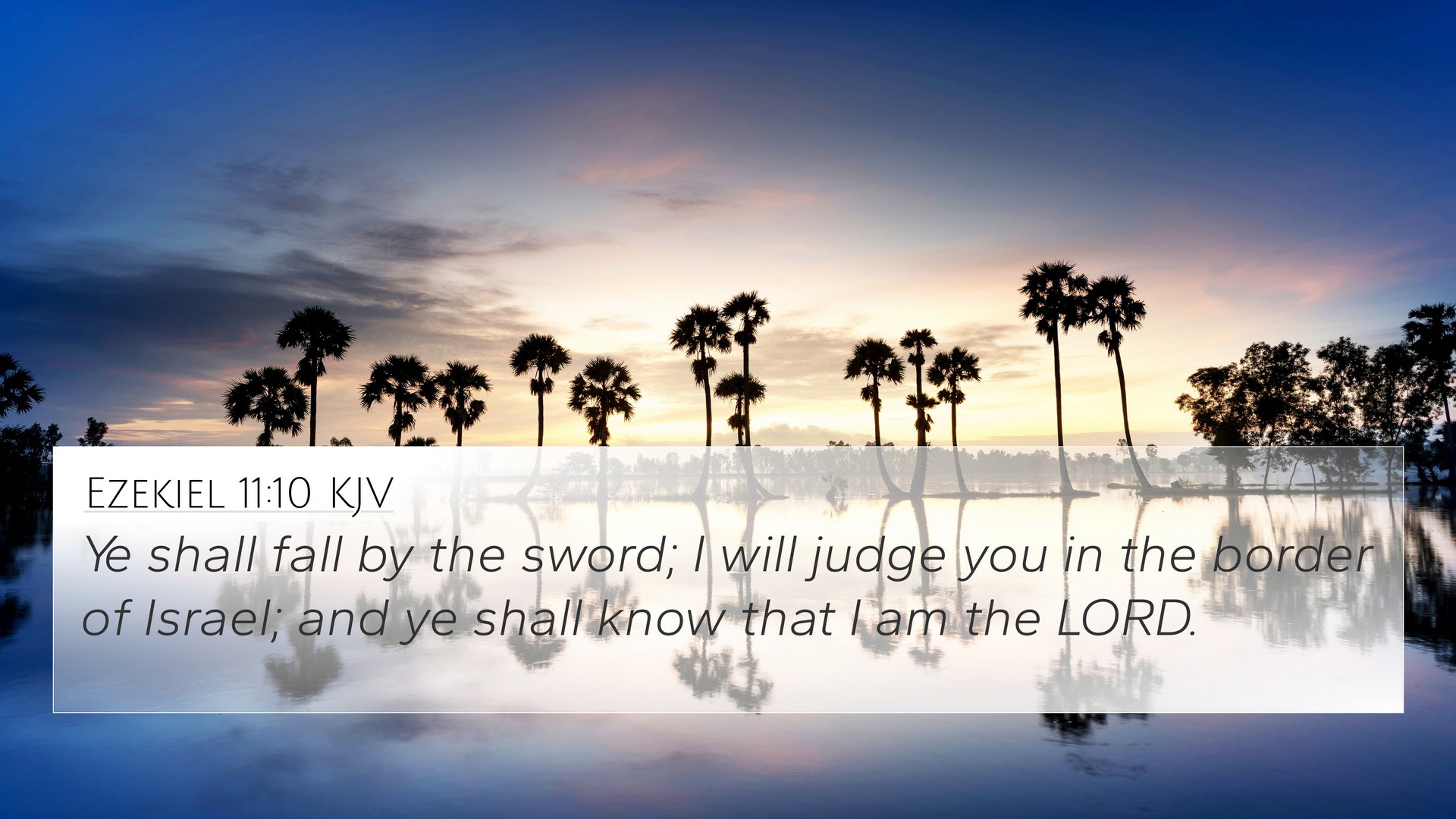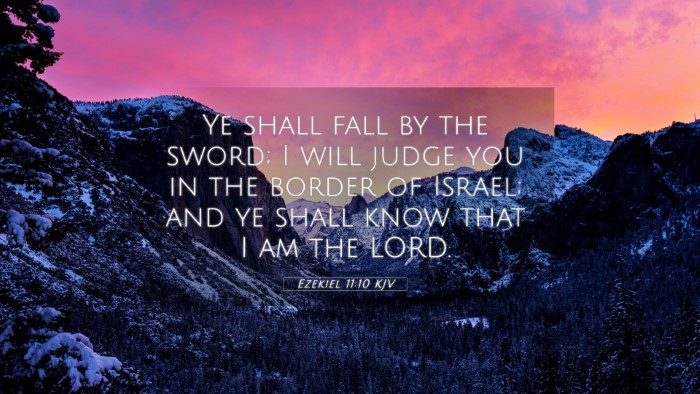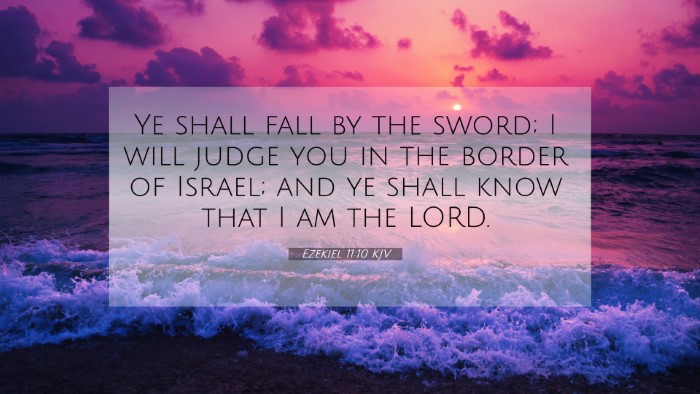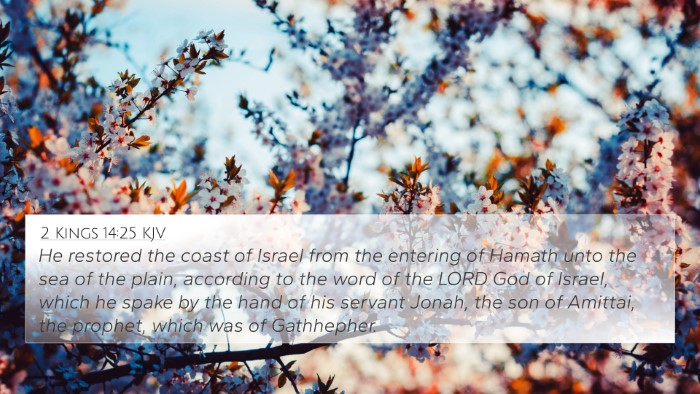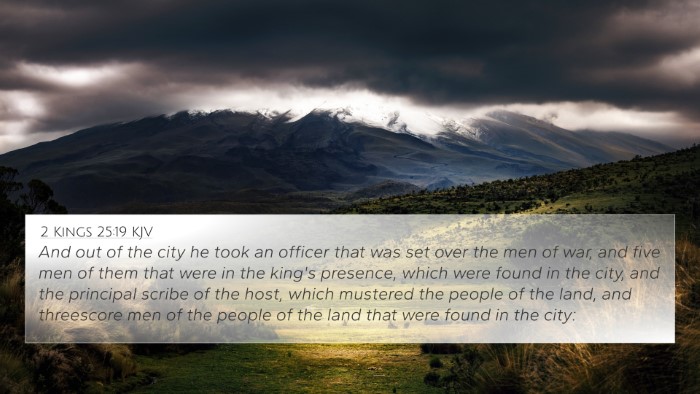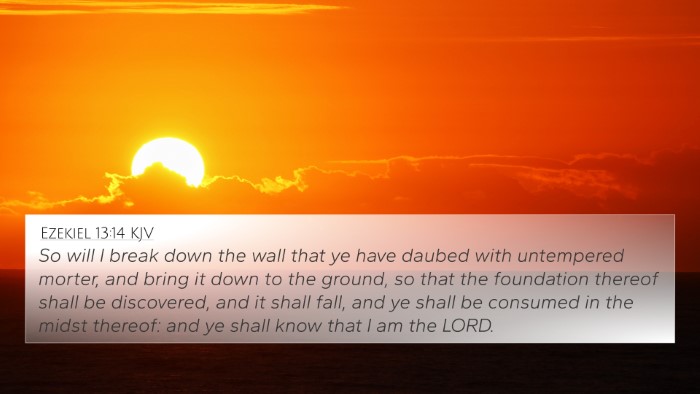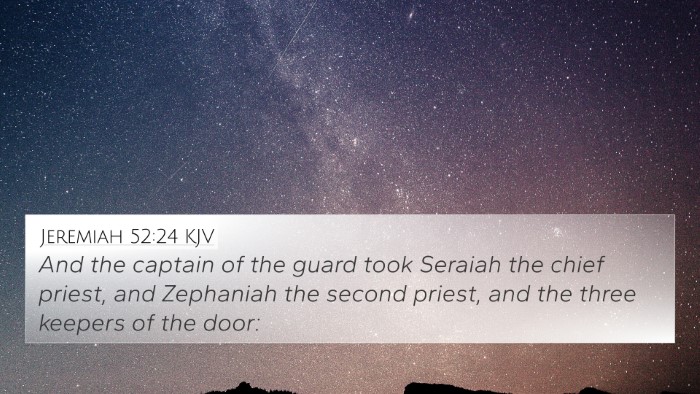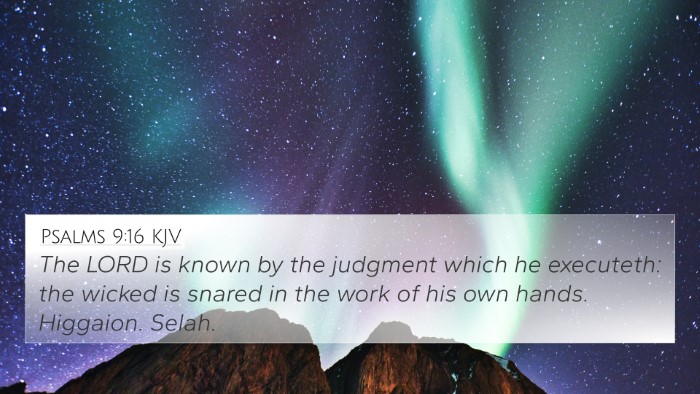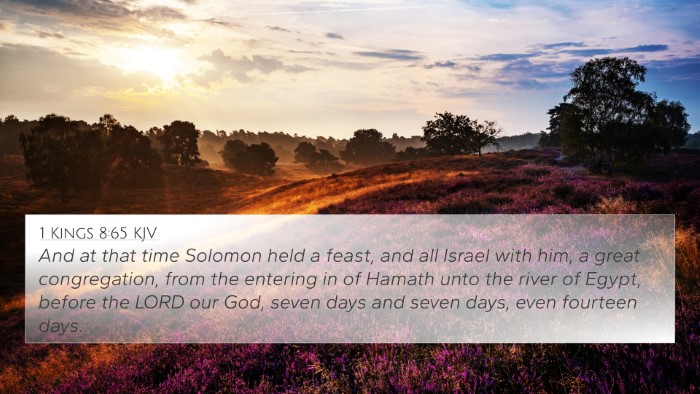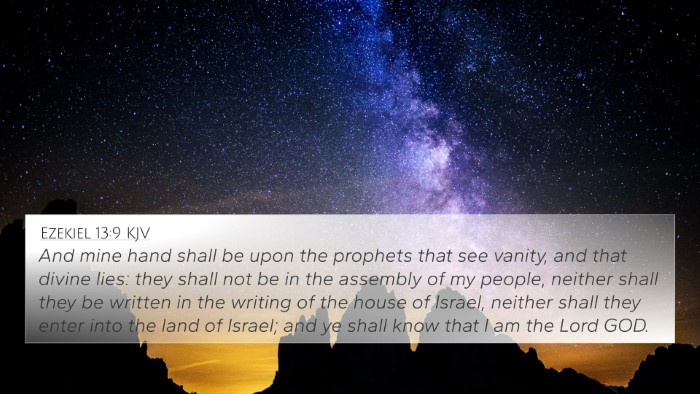Ezekiel 11:10 - Meaning and Interpretation
Verse: "Ye shall fall by the sword; I will judge you in the border of Israel: and ye shall know that I am the Lord."
Overview
Ezekiel 11:10 serves as a significant declaration of divine judgment against the leaders of Israel. In this verse, God communicates through Ezekiel the consequences of the actions of the people and their leaders who have led Israel into ungodliness. The verse emphasizes the certainty of God's judgment while reinforcing the idea that acknowledging the Lord follows this judgment.
Commentary Insights
Matthew Henry's Commentary
Matthew Henry emphasizes the metaphorical language used by Ezekiel to convey a message of accountability. He explains that the "sword" represents God's judgment and the reality that those who lead others into sin will face severe consequences. Henry points out that the mention of the "border of Israel" indicates a critical transition for Israel, where divine judgment will be made manifest.
Albert Barnes' Notes on the Bible
Albert Barnes elaborates on the context of Ezekiel’s prophecy, where he notes that the leaders had engaged in wickedness, prompting God’s warning of impending doom. Barnes underscores that God's aim through this judgment is to make the leaders recognize His sovereignty: "ye shall know that I am the Lord." This knowing is portrayed as both a recognition of the God’s power and a call to repentance.
Adam Clarke's Commentary
Adam Clarke offers an analysis of the broader implications of the verse, stressing the importance of understanding God’s justice. He explains that this judgment serves a dual purpose: punishment for the leaders' trangressions and a means to reveal God’s character as a righteous judge. Clarke notes that this revelation is essential for both the leaders and the people of Israel to restore their relationship with God.
Key Themes and Connections
This verse highlights critical themes such as judgment, accountability, and the acknowledgment of God's authority. There are several connections between Ezekiel 11:10 and other passages that provide a more comprehensive understanding of these themes:
- Jeremiah 25:31: This verse speaks of the judgment that emanates from the Lord due to the sins of nations.
- Ezekiel 18:30: A call for repentance is made here, highlighting the need for the people to turn from their sins to find life.
- Isaiah 66:24: Reference to the consequences of rejecting God aligns with the sentiment found in Ezekiel.
- Hebrews 10:31: Reinforces the concept that falling into the hands of the living God is a terrifying experience, akin to the judgment described in Ezekiel.
- Matthew 10:28: Links fear of worldly judgment to divine judgment, affirming the serious consequences of sin.
- Revelation 20:12: Discusses the final judgment, echoing themes of accountability found in Ezekiel.
- James 4:12: Highlights that God is the ultimate lawgiver and judge, correlating with the message in Ezekiel.
Conclusion
Ezekiel 11:10 serves as a pivotal warning of judgment and a declaration of God's character as righteous judge. Through the commentaries of Matthew Henry, Albert Barnes, and Adam Clarke, we see profound insights into the necessity of accountability among leaders and the imperative nature of recognizing God's authority. As believers, understanding these themes is essential in grasping the significance of divine judgment and the call for repentance that leads to spiritual restoration.
